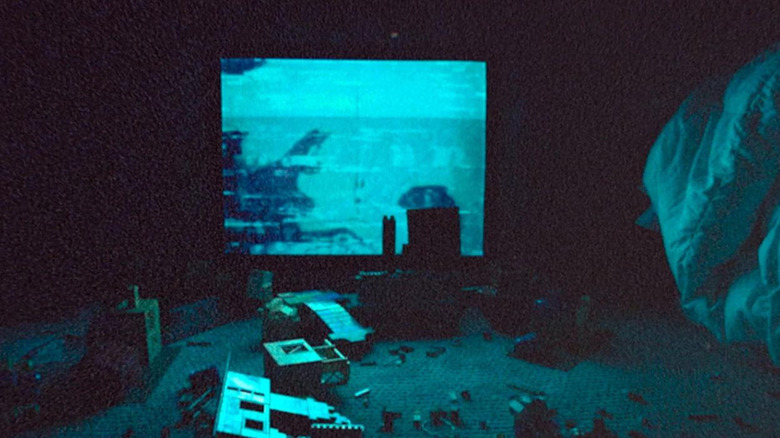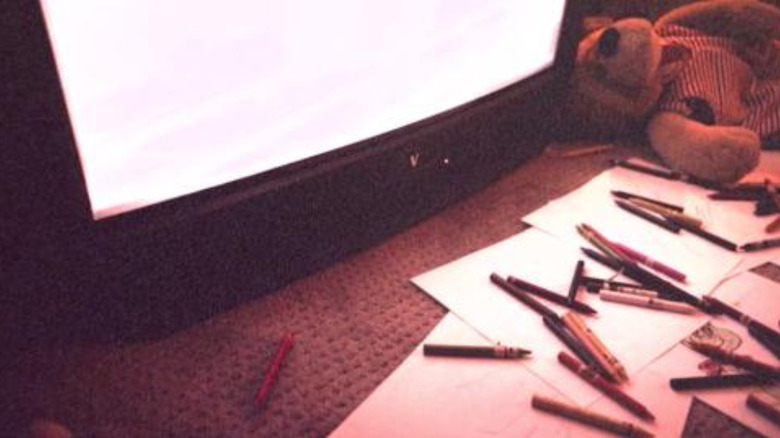Micro-Budget Horror Skinamarink Created Its Most Haunting Moments With A Television
There is no denying that "Skinamarink" is one hell of a terrifying film. However, outside of a few jump scares, its terror lies in its still darkness — it's one of those movies that makes your brain conjure up the unseen horrors lurking within the screen's blackness. No matter how terrifying you think the ultimate reveal of what's going on will be, you're ultimately unprepared to face the truth. I'm not ashamed to admit that it got under my skin in a way very few movies have.
However, a lot of its charm and terror come from the circumstances surrounding its production. "Skinamarink" only cost $15,000 CAD to produce, which is just under $11.2 thousand in USD, and eagle-eyed viewers of the opening credits would have seen director Kyle Edward Ball's parents as being responsible for "locations." This terrifying film, which achieved cult virality on social media platforms like TikTok and Twitter, was filmed entirely in Ball's childhood home with anything that the crew could get their hands on.
Of course, being on such a small budget usually is a double-edged sword. While you'll be able to achieve that homemade aesthetic, you'll also have to find ways to get around technical issues. In an interview with Filmmaker Magazine, Ball explained how overcoming these hurdles ultimately made for a more effective movie, with one specific aspect benefiting the film in the long run.
Come into the light
One of the most difficult issues that independent filmmakers on tight budgets struggle with is how to properly light scenes. Lighting is an incredibly important part of storytelling, so much so that the wrong lighting can easily tank a movie. Thankfully, "Skinamarink" is well-lit, even though much of the movie is in near-total darkness because Kyle Edward Ball and his team derived the necessary light from a very creepy, practical source.
"We were able to basically light the entire movie with what was available," Ball told Filmmaker Magazine. "Significant portions of the movie were literally just lit by the television, and the scenes that aren't are at the beginning of the movie, and we were just using lamps and a flashlight."
If you remember those television scenes from "Skinamarink," you'll know how increasingly creepy they were. As the old public-domain cartoons played throughout the night, they became the only real source of safety — while the mysterious demon would move toys around to stick on the walls, it was seemingly impossible for it to actually harm Kevin (Lucas Paul) and Kaylee (Dali Rose Tetreault) while it was on. Not only did the lack of real lighting help make the atmosphere more terrifying, but it also served as an important narrative device in an otherwise abstract film.
Details like this make you wonder if "Skinamarink" would have been as effective with a higher budget. However, the answer is clear: the television-illuminated, hometown sets of the film just would not be as eerie or spine-chilling as they are.

